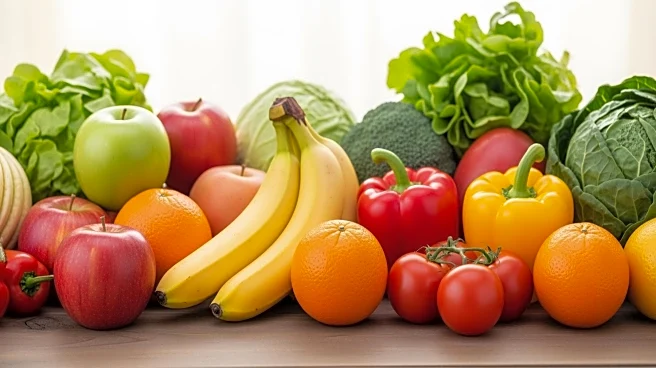What's Happening?
Pakistan and the United States have agreed to expand their cooperation in agriculture and trade, focusing on genetic improvement programs for dairy and beef cattle, hybrid and disease-resistant crop research, local vaccine production, and agricultural
mechanization. The collaboration aims to enhance productivity and export competitiveness, with the U.S. playing a key role in Pakistan's agricultural development through joint projects and technical collaboration. The partnership includes initiatives like the Agricultural Linkages Program and the Wheat Productivity Enhancement Project, which have strengthened research capacity and produced improved wheat varieties.
Why It's Important?
The enhanced cooperation between Pakistan and the U.S. in agriculture and trade is significant for both countries, as it aims to boost Pakistan's agricultural productivity and export potential. The collaboration supports Pakistan's efforts to establish a Foot and Mouth Disease-free zone and improve livestock traceability, aligning with international standards. For the U.S., the partnership represents an opportunity to strengthen bilateral relations and support Pakistan's agricultural sector, which is crucial for food security and economic development.
What's Next?
The partnership is expected to lead to increased agricultural exports from Pakistan to the U.S., particularly mangoes and horticultural products, through improved certification and export protocols. The collaboration may also promote precision agriculture and digital farming technologies, enhancing efficiency and sustainability. Continued support from the U.S. for Pakistan's agricultural education and research institutions will be crucial in achieving these goals.
Beyond the Headlines
The collaboration between Pakistan and the U.S. highlights the importance of international partnerships in addressing global challenges like food security and sustainable agriculture. By leveraging advanced technologies and research, both countries can work towards improving agricultural resilience and productivity, benefiting farmers and consumers alike. The partnership also underscores the role of agriculture in strengthening diplomatic ties and fostering economic growth.
















